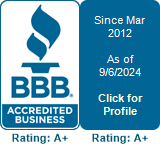There are 2 types of bankruptcy generally available for most taxpayers: Chapter 7 & Chapter 13. To discharge taxes with a Chapter 7 bankruptcy you must have timely filed the returns. And the tax must be greater than 3 years old and was assessed more than 2 years prior to the filing of the bankruptcy. So, it is vitally important to obtain your Account Transcripts to determine the date of assessment and the timeline for your case.
Even with a Chapter 7 bankruptcy the Federal Tax Lien (if one was filed) will continue in effect until the full 10 year statute of limitations for collection has expired. So, you'll have to keep any real estate you own until the limitations period has expired.
For Chapter 13 bankruptcies, you can include the taxes in the plan to make payments for 5 years. At the end of the 5 years you will get a discharge of the taxes. The lien will be extinguished as well.
So, in many ways, a Chapter 13 can be more beneficial, depending on your circumstances. If you have priority taxes or a security tax lien on equity in property you'll have to pay the taxes to keep the property.
There are many, many other qualifications for bankruptcy and it is terrible for your credit (although a tax lien is equally devastating). Please use this Evaluator to see if you qualify! When you are able, gather all your the documents and come into our offices. We can sit down and construct a vigorous Action Plan to reduce or dissolve your IRS debt entirely!
J. David Hopkins, JD, LLM






